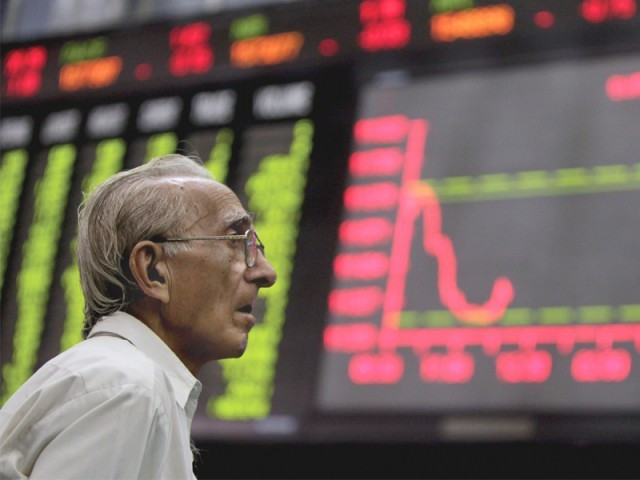Quick recovery follows recent downturns on volatile KSE
Market is lifted by stocks with high capitalisation and low trading.

"KSE-100 index is up by over 93% since January 2012 and the rally is likely to continue," Standard Capital Securities CEO Naushad H Chamdia. PHOTO: REUTERS
Volatile is the word that best characterises the sudden downturns and unexpected upturns in the Karachi Stock Exchange (KSE) 100-Share Index in recent months.
The KSE-100 index went down 5% in August alone, although the market has yielded a return of 31% – or 22% in dollar terms – since the beginning of the year, making it one of the best performing stock markets in Asia so far.
“There’s no possibility of a stock market crash. Not until mid-2014 at least,” said Standard Capital Securities CEO Naushad H Chamdia while speaking to The Express Tribune.

“The KSE-100 index is up by over 93% since January 2012 and the rally is likely to continue until the amnesty scheme is over,” he added, referring to the scheme the government introduced while imposing capital gains tax in January 2012.
The amnesty scheme, which will last until June 2014, allows investors to bring as much money into the stock market as they please without having to face any queries from regulators about the origin of their wealth.
“A very large portion of the money that’s driving the upward movement of the KSE-100 index owes its existence to the amnesty scheme,” Chamdia said.
Indeed, if recent history is any guide, the 5% correction in the KSE-100 index is likely to be followed by a quick recovery sooner rather than later. A cursory look at some of the recent downturns shows they were invariably followed by unexpected recoveries.
For example, the KSE-100 index lost 690.8 points from August 1 to August 6. But the benchmark index gained 615.2 points in the subsequent session on August 7, largely offsetting the earlier losses.
Similarly, in the three trading sessions from July 11 to July 17, the index shed 415.4 points. In a couple of subsequent sessions, however, the index regained 434.2 points.
Explaining the phenomenon, Primus Investment Management CEO Ahmed Ateeq says the sudden rise in the KSE-100 index every time it takes a dip is on the back of those stocks whose market capitalisation is high but daily trading volumes are relatively low.
“Its impact is reflected in the index even if you trade just 2,000 shares in such a stock. Individual investors can’t see the real situation. Their shares remain at the same level, but the ones that they can’t afford go up by as much as Rs160 in a single day. It’s basically a fake recovery,” Ateeq told The Express Tribune.
Referring to one recent trading session when the index experienced a sudden surge after plunging many hundred points in preceding sessions, Ateeq said up to 97% of the day’s total volume was traded while the index was heading south.
“A stock doesn’t automatically become a growth stock just because its price is appreciating. Growth stocks are those whose earnings are expected to grow based on the company’s future expansion plans,” he said while urging retail investors to be wary of buying a share based on market sentiments alone.
So who exactly pushes up the prices of stocks in the wake of every dip in the stock market, offsetting the correction in the process?
According to a seasoned broker who deals in large volumes of shares on a daily basis, every plunge in the KSE-100 index is swiftly followed by a seamless recovery because large industrial groups pour in investments in the stocks of companies that are part of their own conglomerates after every correction.
“It’s the money that these industrial groups had siphoned and parked outside of Pakistan. It is illegal money, which they bring into the country by taking advantage of the current amnesty scheme,” he said.
Noting that the average daily volume traded on the KSE has more than doubled after the amnesty’s introduction in the beginning of 2012, he added their continuous investments have so far prevented a real correction from taking place. “Whenever the market goes down, they invest into their own stocks, and share values gain momentum once again,” he observed.
Published in The Express Tribune, September 4th, 2013.
Like Business on Facebook, follow @TribuneBiz on Twitter to stay informed and join in the conversation.



















COMMENTS
Comments are moderated and generally will be posted if they are on-topic and not abusive.
For more information, please see our Comments FAQ